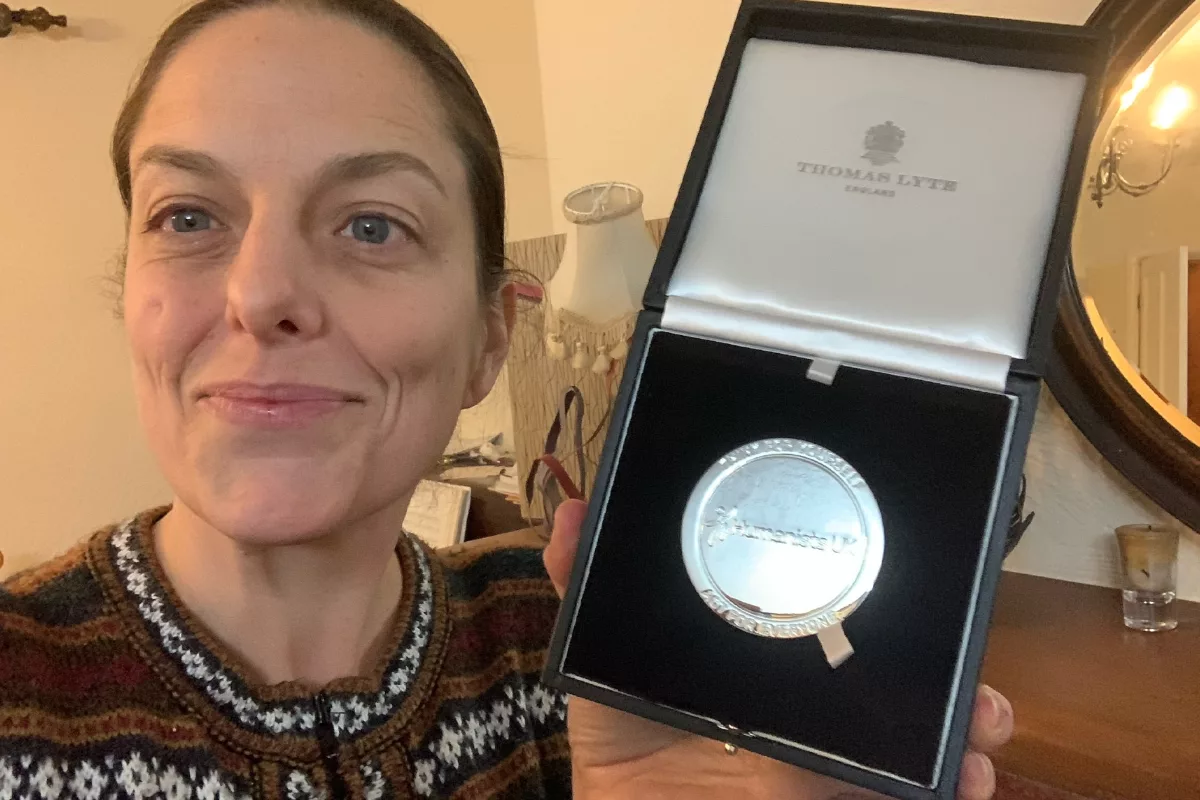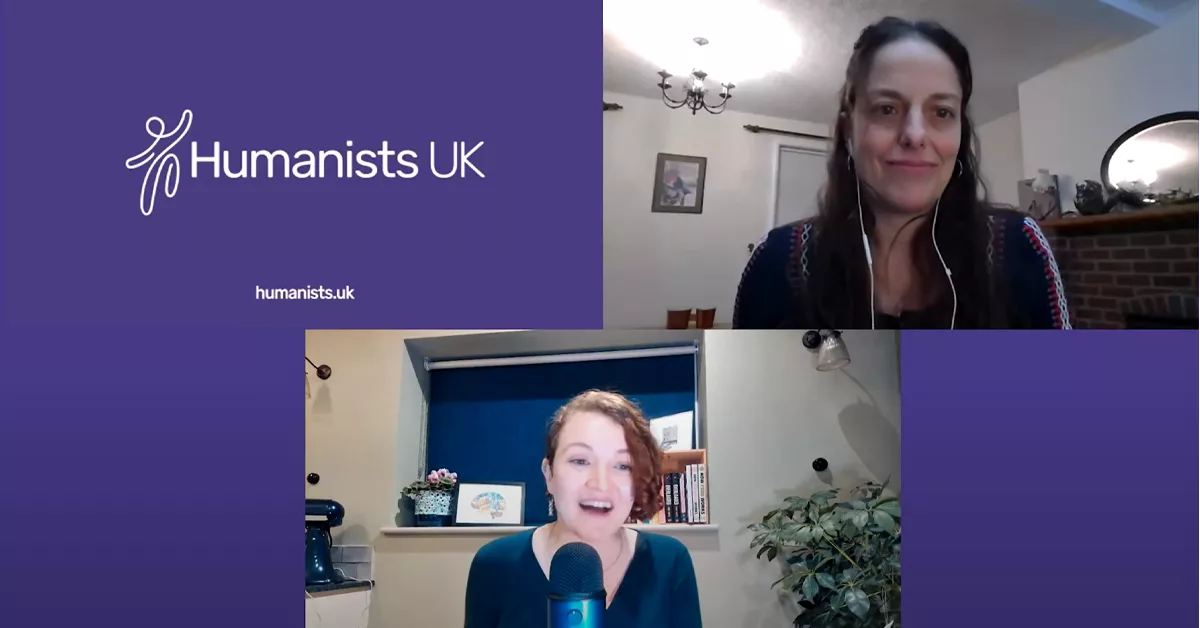
The 2024 Blackham Lecture, hosted online by Humanists UK, was delivered by distinguished biological anthropologist and archaeologist Dr Brenna Hassett, this year’s recipient of the Humanists UK Blackham Lecture Medal.
The lecture, Growing Up Human: The Evolution of Childhood, delved into the evolutionary advantages of humanity’s uniquely prolonged childhoods. Drawing on her extensive research, she explained how extended child-parent dependency has allowed humans to develop advanced languages, social systems, and unparalleled cultural practices.
Using comparisons with other primates and ancient hominins, Dr Hassett illustrated how human growth patterns differ significantly from our closest relatives, such as chimpanzees. She highlighted that certain skeletal structures, like the shoulder joints, take nearly twice as long to mature in humans. Fossil evidence shows that early hominins, including Australopithecus and Homo erectus, matured at faster rates than modern humans.
Dr Hassett explained how teeth, unlike bones, retain original growth markers indefinitely, making them a unique and reliable record of development. Growth lines in enamel provide a detailed timeline of how quickly teeth formed and, by extension, how quickly a child grew, offering insights into the evolutionary timeline of human development.
Turning to the ‘grandmother hypothesis,’ she explored a compelling idea which posits that an extended lifespan was selected to allow older generations, particularly grandmothers, to play a vital role in the upbringing of their grandchildren. This evolutionary adaptation, she explained, distinguishes humans from most other species. Unlike many animals that reproduce until the end of their lives, humans experience a significant post-reproductive phase. This stage, often referred to as menopause, allows older individuals to shift their focus from bearing children to investing time and resources in the generation after.

Education, Dr Hassett emphasised, stands as one of humanity’s most remarkable innovations. She shared archaeological evidence from Mesopotamia, where clay tablets were used for literacy and numeracy drills, and from Ancient Egypt, where ostraca and illustrations highlighted apprenticeships in specialised trades. Artefacts such as rattles, miniature carts, and potties reflected the role of imaginative play and learning, while graffiti from Pompeii revealed how children blended play with practical tasks like caring for livestock. These artefacts show who these children were growing up to be and what was expected of them, Dr Hassett said.
These stories of human evolution over millennia strongly supported humanist ideas about the rights and responsibilities we as human beings have to one another. If human beings have evolved to have extraordinary learning capabilities in their early stages of life, said Dr Hassett, then education should surely be available to all children, everywhere, on the same basis. Much the same, evolutionary forces and biological processes too have shaped human beings’ unique experiences of childhood. This highlighted not only the innate importance of play, learning, and social interaction in our development, but also how our extended childhoods have contributed to our success and flourishing as a species.
Following a lively and wide-ranging Q&A, Blackham Lecture chair Dr Ginny Smith presented Dr Brenna Hassett with the Blackham Lecture Medal:
‘…for her remarkable contributions to understanding and explaining what makes us human – by exploring the evolution of human childhood and the profound connections and interplays between the natural world around us, the cultural forces that shape our species, and our own individual development – a powerful reminder of how deeply rooted we are in the shared story of life on Earth.’
Notes
For further comment or information, media should contact Humanists UK Director of Public Affairs and Policy Richy Thompson at press@humanists.uk or phone 0203 675 0959.
The Blackham Lecture explores an aspect of education, childhood, or lifelong development, either philosophical, practical, or social, that relates to humanism. The Blackham medallist has made a significant contribution in one of these fields. The lecture and medal are named for the educationist and activist Harold Blackham, first executive director of Humanists UK and first general secretary of Humanists International.
Humanists UK is the national charity working on behalf of non-religious people. Powered by over 130,000 members and supporters, we advance free thinking and promote humanism to create a tolerant society where rational thinking and kindness prevail. We provide ceremonies, pastoral care, education, and support services benefitting over a million people every year and our campaigns advance humanist thinking on ethical issues, human rights, and equal treatment for all.
